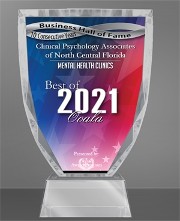Learning and memory problems or complaints are common in adults and children. We all forget sometimes and no one remembers everything. While this is rather obvious, the assessment of memory in clinical and other settings can be quite variable. Evaluations of memory may range from simple bedside assessments or sideline football concussion screenings to detailed comprehensive neuropsychological assessments. The reliability and validity of such approaches depends on the measures used and comparisons made with estimated or actual abilities, age, education and other factors.
Quick bedside screenings may be adequate for detecting severe impairment but have limited utility in diagnostic differential, or for early detection, treatment, or early intervention for children and adults. Comprehensive neuropsychological evaluation of memory occurs in the context of detailed medical and developmental history, more general clinical psychological evaluation, review of symptoms and complaints, formal diagnostic evaluation and interview, neurobehavioral examination, and formal neuropsychological testing.
Not all neuropsychological evaluations of memory are the same.The most comprehensive methods include formal assessment of verbal and nonverbal intelligence, academic achievement and other factors which tend to better predict what is a scientifically significant and/or clinically meaningful difference between actual or estimated abilities and memory skills. Such approaches also take into consideration age, education and other factors. What might be normal memory for one person or for age might actually be quite abnormal for a gifted student or might reflect a brain injury or other metabolic or neurological condition has impacted a bright professional adult.
Neuropsychologists may vary in their approach to pediatric or adult neuropsychological assessment ingtestof memory complaints. SImple approaches might include a single verbal and single nonverbal measure of immediate memory. This may be helpful for screening and needs for more evaluation but provides limited information for diagnostic differentiation, treatment, or educational planning.
More comprehensive neuropsychological evaluation approaches also assess psychiatric conditions such as anxiety or depression which may also contribute to interference with anxiety or memory and/or produce memory complaints. Such approaches carefully evaluate verbal and nonverbal attention as well as memory, since attentional problems can interfere with acquisition and retention of information. Visual and language processing skills and abilities are also assessed since auditory/verbal or visual neurocognitive or processing problems can interfere with acquisition and retention of information. Assessment of executive functions assists with determining if impulsiveness or retrieval difficulties interfere with recall or cause confused memory, and assessment of sensory and motor skills can help determine lateralized neurological patterns which might be associated with greater verbal or visual memory deficits.
Comprehensive pediatric and adult neuropsychological evaluations of memory rarely will rely on only single measures of memory and will generally avoid briefer screening measures which might be better suited for assessing progress or placement needs than for diagnostic differential. Comprehensive approaches will utilize all or most subtests of well standardized memory batteries such as the Wechsler Memory Scales, Wide Range Assessment of Memory and learning. This allows for examination of rote and semantic verbal memory, verbal retention over the course of delay, and recognition memory which helps assess possible retrieval difficulties. Likewise such measures assess learning and retention for more meaningful visual information or geometric figures. Some specialized measures may examine facial recall. Comprehensive neuropsychological measures will also use more sensitive and demanding supraspan measures.
Obviously this approach is more tedious and time consuming but will generate much more information to detail the causes, extent, and patterns of memory difficulties. This goes far beyond the typical bedside Mini-Mental Status exam or recalling the current president or a few items for more than a few minutes. The most reliable approaches involve face-to-face testing in a controlled testing environment. Many measures done on-line or through tele-health have not been thoroughly validated or researched in terms of whether patterns typically assumed for standard testing generalize.
Motivation and effort often can influence memory performance. Sleep and medication also need to be considered. Comprehensive neuropsychological assessment measures will incorporate embedded and standalone measures of performance validity and include assessment or formal measures of symptoms validity. This is particularly important when assessment is used for accommodations, benefits, or may be used in criminal, personal injury, disability, or family law cases which warrant forensic neuropsychologcal evaluation.
Clinical Psychology Associates of North Central Florida is based in Gainesville, FL and has a branch office in Ocala. We have also conducted out-of-town forensic evaluations throughout Florida and Dr. Bordini has served as an expert witness in multiple Florida and Federal courts. We specialize in providing a comprehensive approach to assessment needs.
Contact us today at 352-336-288 for more information about how we can assess your memory and learning concerns.
Our office hours are 9-5 M-F and by appointment.
Additional Links to our other websites for more information:
Our main practice website: CPANCF.COM
NeuropsychologyClinic.com
PediatricNeuropsychology.com
Foensic-Neuropsychology.com
OcalaNeuropyshcology.com
ADHDAssessment.com
LDAssessment.com
AustimSpectrumAssessment.com
NeuropsychologicalAssessment.com
NeuropsychologyCentral.com
Visit our Facebook Page
